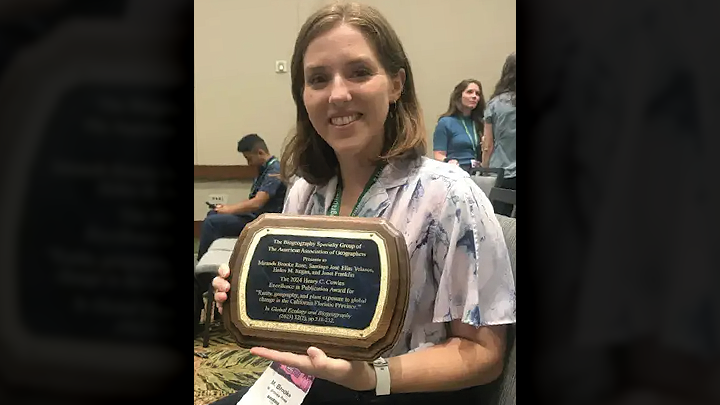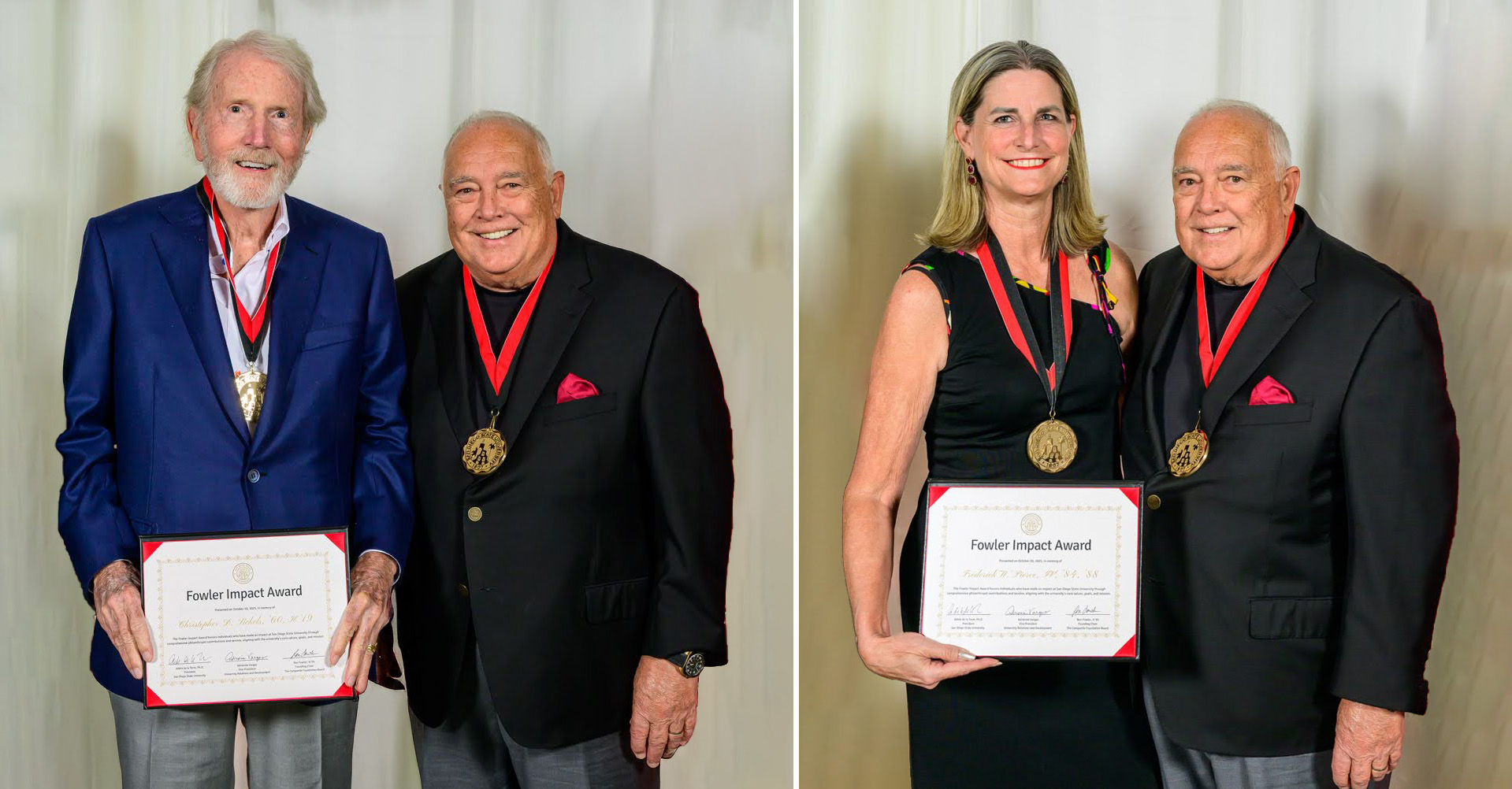SDSU geographers receive two peer awards
Postdoctoral scholar M. Brooke Rose and her mentor, Janet Franklin, were recognized by the Ecological Society of America and the American Association of Geographers for co-authored study.

San Diego State University postdoctoral scholar M. Brooke Rose and her faculty mentor Janet Franklin, received two awards for their work in geography and biodiversity.
In April, the Biogeography Specialty Group of the American Association of Geographers (AAG) selected Rose, Franklin, Endowed Campanile Foundation Professor of Geography in the Center for Open Geographical Sciences, and their co-researchers for its 2024 Henry C. Cowles Excellence in Publication Award.
Then in May, Rose and Franklin were among the recipients of the Ecological Society of America (ESA) 2024 Cooper Award, which honors the authors of an outstanding publication in geobotany, physiographic ecology and related fields.
“Receiving these awards for this particular paper feels extra special because it's the result of my first dissertation chapter as well as my first couple of years getting familiar, and falling in love, with California's amazing biodiversity,” Rose said. “This project required me to learn about the ecology of many of California's iconic plants, from redwoods, to blue oaks, to manzanitas – and to understand what makes these plants so unique.”
Rose was lead author of a study on species rarity and geography and their exposure to climate and land use change, co-authored by Franklin and others and published in 2023 in the journal Global Ecology and Biogeography.
ESA awards recognize outstanding contributions to ecology in new discoveries, teaching, sustainability, diversity and lifelong commitment to the profession. The ESA awards are designed to reward past achievements and to inspire a broad audience of scientists, educators, and students, opening the door to new insights and collaborations that will further the impact of ecological research.
“Analyzing the ranges of over 100 species of plants, this study provides a crucial analysis of how a plant’s rarity and geography affect its vulnerability to climate and land use changes,” the ESA noted. “The findings reveal that rare species, such as those with smaller ranges, are particularly susceptible to climate change impacts. However, for predicting a plant’s susceptibility to land use change, geography — not rarity — is a better predictor. The intertwined nature of rarity and geography underscores the importance of incorporating both of these factors into conservation strategies.”
Rose said having her work recognized by experts in the field is “especially uplifting as a young scientist experiencing imposter syndrome,” a feeling of self-doubt or undeserving of success despite evident talent.
She first began working with Franklin in 2019 while she was pursuing her Ph.D. in plant biology at the University of California, Riverside. She has now joined Franklin at SDSU as a postdoctoral scholar and said that Franklin “is a fabulous mentor.”
Besides Franklin, Rose’s co-authors were Santiago José Elías Velazco, researcher with Consejo Nacional de Investigaciones Científicas y Técnicas in Buenos Aires, Argentina, and Helen M. Regan, professor and chair of biology at UC Riverside.
The work was supported by grants from the National Science Foundation and the U.S. Department of Agriculture.


